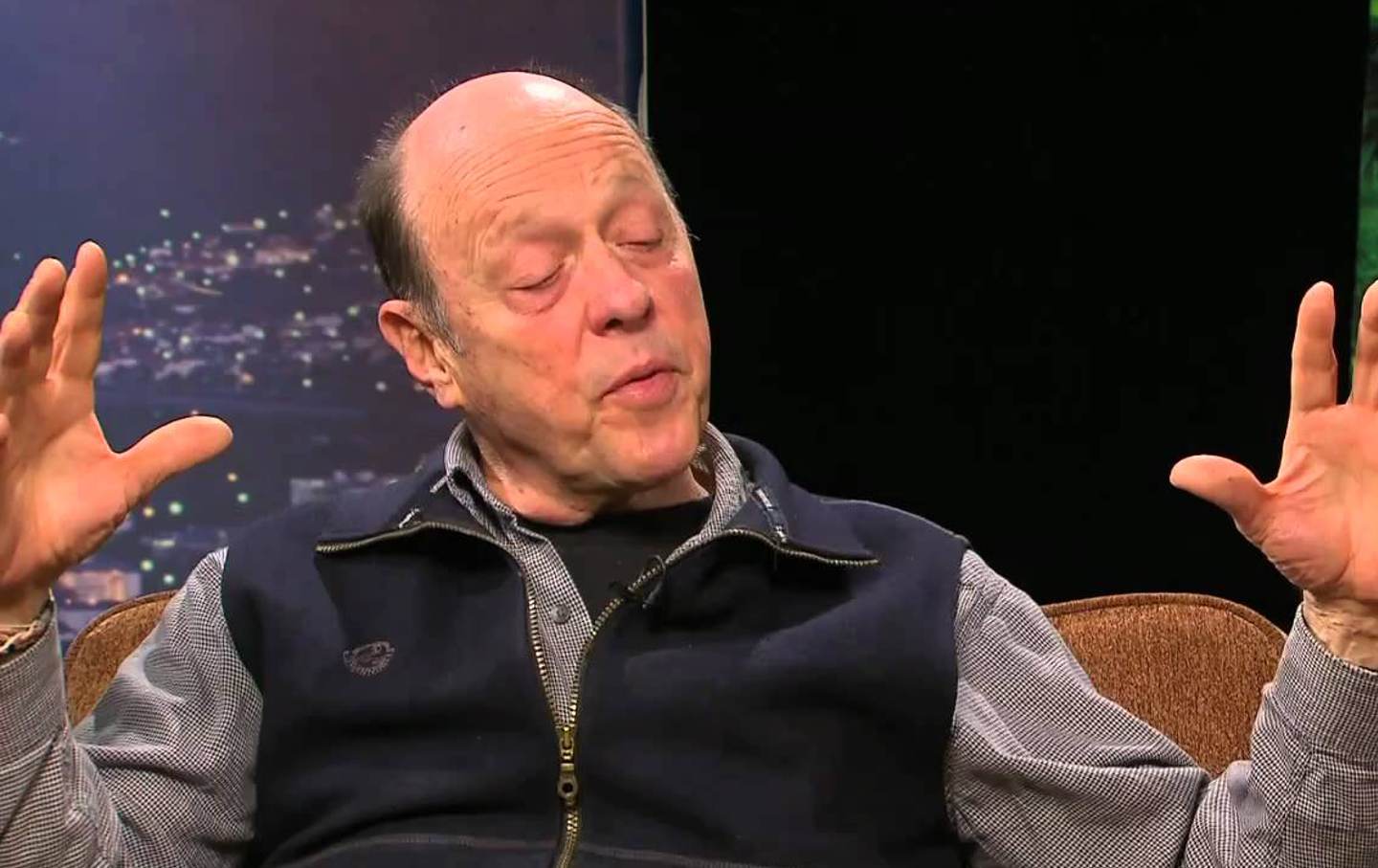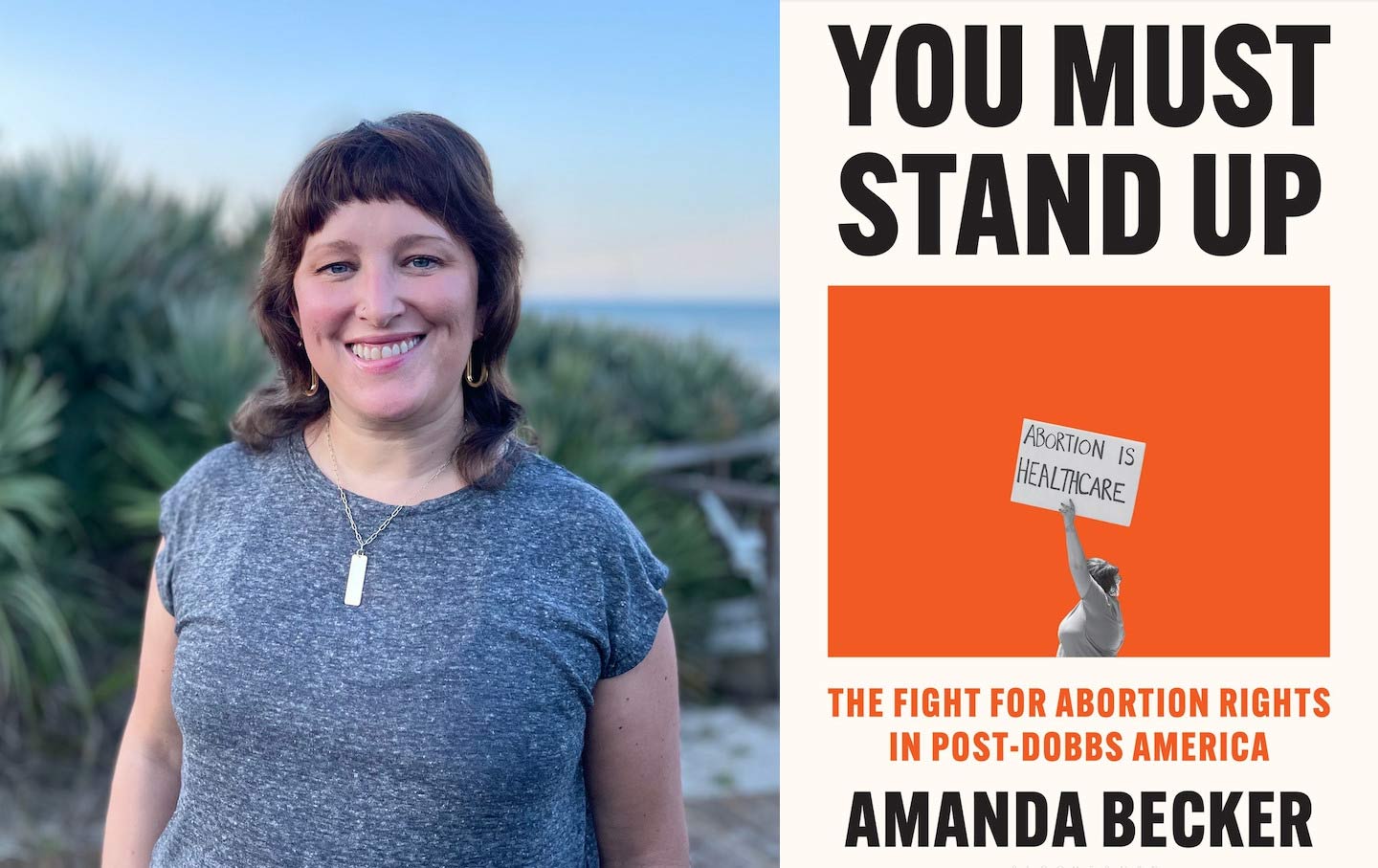
[ad_1]
Culture
/
Books & the Arts
/
September 5, 2024
The radical anthropologist offered not only incisive studies of the state but also a vision of what life looked like beyond it.

With little charity but unerring accuracy, the anthropologist Eric Wolf once described his discipline’s original sin. Anthropologists, he wrote, “look for pristine replicas of the precapitalist, preindustrial past in the sinks and margins of the capitalist, industrial world.” But the search did not take place in a vacuum:
Europeans and Americans would never have encountered these supposed bearers of a pristine past if they had not encountered one another, in bloody fact, as Europe reached out to seize the resources and populations of the other continents. Thus, it has been rightly said that anthropology is an offspring of imperialism.
The same could be said of most fields of scientific inquiry, few of which escaped the bloody cartography of European conquest. But anthropology is different. It is part of a cohort of disciplines (mineral and petroleum sciences also come to mind) not only predicated on the existence of a strong expansive state but descended directly from efforts to increase state power over unconquered peoples and exploitable territory. This fact is the irresolvable tension at the heart of the subject. As the comparative study of cultures, anthropology can increase our understanding of the world. It might help counter prejudice or preserve intangible heritages. But much of its knowledge has come to “us” —those of us in the state cores of the “capitalist, industrial world”—on the backs of colonialism and empire.
In the middle of the 20th century, a new generation of scholars, influenced by Marxism, began to question the hierarchical assumptions about race and civilization that were intrinsic to the field’s myth of the pristine primitive. Although still mostly white and male, anthropology became, not for the first time, a site of imagined emancipatory potential. One of Wolf’s peers at Columbia, Stanley Diamond, argued that anthropologists— even if they often appear to their informants as spies, and even if they are spies, in a manner of speaking—are also “double agents”:
That is, they are marginal to the commercial-industrial society that created them, but they eagerly explore the areas opened up to them by colonialism. Anthropology is an academic discipline, but it also implies revolt, a search for human possibilities.
James C. Scott, who died last month, was just such a double agent. He was among the greatest plumbers in our lifetime of the “sinks and margins of the capitalist, industrial world,” finding in the agrarian villages and high-friction highlands of Southeast Asia a patchwork of concepts that has changed the way social scientists understand resistance, authority, and the state itself. A professor of political science and anthropology at Yale (although he considered himself an interloper in the latter field), Scott produced a half-dozen books as engaging as they are idiosyncratic, elucidating subtle forms of resistance practiced in the subaltern world and proposing new ways of understanding the ambitions of the modern nation-state. He remained a lifelong citizen of the academy but built a reputation as a left libertarian thinker whose influence was felt among anti-authoritarian artists and activists living far beyond it.
James Campbell Scott was born in New Jersey in 1936, the son of a doctor whose early death crushed the family’s economic prospects. He attended a Quaker school on a scholarship, then Williams College, where he wrote an honors thesis on Burma. He postponed attending Harvard Law School to spend a year studying in the country—his first experience abroad—followed by travel in North Africa. The trips convinced him to drop law for political science.
Current Issue

Scott’s trajectory was set by the anti-war movement of the 1960s. As an undergraduate, he was active in the National Student Association, a predecessor of Students for a Democratic Society, and his early research took place against a backdrop of peasant insurgencies and brutal US interventions in Southeast Asia. He turned down a CIA recruiter’s offer to write reports for the agency but later learned his NSA dispatches were being forwarded to it anyway. He realized that academic work was always at risk of appropriation by the state. As he recalled, “At that point it seemed to be the most important thing I could do with my time, to understand peasant politics, peasant revolution and wars of national liberation.”
Scott earned his PhD at Yale, writing a dissertation based on his interviews of civil servants in newly independent Malaysia. He then found a job as professor of Southeast Asian politics at the University of Wisconsin, where he lectured on Vietnam to auditoriums packed with students against the war. His dissertation was published as Political Ideology in Malaysia in 1968, at the height of a global fever of revolt, though it did not find a wide audience. Scott considered it to be a failure. He was working, he said, in a “narrow, hyper-specialized discipline” he would soon abandon. His follow-up, Comparative Political Corruption, on machine politics, likewise had little impact.
But with his next book, Scott inaugurated a run of significant classics. Published upon his return to Yale in 1976, The Moral Economy of the Peasant examined the “subsistence ethic” that evolved among peasants in Southeast Asia, a region vulnerable not only to weak authoritarian states and foreign conquest but also to typhoons and drought. Its first pages describe a man-made famine that struck North Vietnam under Japanese occupation in which around 2 million Vietnamese people died. These were themes that would occupy Scott for the rest of his career: the immense precariousness of the rural peasantry and the disasters of state schemes to control their resources.
Moral Economy argued that peasants make rational choices about their lives even when those choices do not appear to maximize individual economic benefit. If peasants did not always enlarge their yields as much as possible in the manner of a capitalist farmer, this was because they were choosing to minimize risks that would otherwise be catastrophic. By sharing their harvests with other villagers, farmers created systems of reciprocity that served as risk insurance against famines and other disasters. Here Scott was advancing an idea described by the philosopher Michael Polanyi, who believed that these kinds of redistributive mechanisms made premodern economies immune from the threat of individual starvation, producing so-called primitive societies that were “more human than market economy, and at the same time less economic.” But while Polanyi saw this as something of the distant past, Scott suggested that such systems of mutual aid had persisted into the era of colonial rule and remained common sense for those who engaged in them. They only broke down under new tax systems and market impositions, which ultimately drove peasants to revolt —most often unsuccessfully.
Scott’s thesis was provocative. Among political economists, it was assumed that individuals in every society worked to maximize their economic advantage—that this was what made them rational actors. To suggest otherwise was blasphemy. Another political scientist, Samuel L. Popkin, devoted a book, The Rational Peasant, to rebutting many of the arguments made in Moral Economy. The resulting controversy was proof of Scott’s growing influence. He developed a reputation as a renegade scholar.
If The Moral Economy of the Peasant was an attempt to understand the motivations for certain peasant rebellions in Southeast Asia, Scott’s next book, Weapons of the Weak, was an effort to understand why such rebellions did not occur more often. It was a new kind of project for Scott, who was accustomed to “library work.” The book required two years of ethnographic fieldwork in a small village in Kedah, Malaysia’s largest rice-growing region, where inequality was rising sharply and peasants were being pressed by landlords and buyers to adopt mechanized forms of farming.
Scott referred to the book as the hardest thing he had ever done. It required that he risk the evaporation of his career as a political scientist while spending several years in a remote village collecting data on land distribution, income, and political affiliations from its hundreds of inhabitants. But the gamble paid off. Weapons of the Weak became a classic entry in the burgeoning subfield of “resistance studies,” a field he then expanded with his 1990 Domination and the Arts of Resistance.
Among the new concepts that become lodged in one’s brain after reading these books is the idea of “infrapolitics,” those prosaic forms of resistance practiced by peasants and other members of the underclasses who cannot commit themselves to open and collective defiance. Infrapolitics, as Scott explained, includes such actions as “foot dragging, dissimulation, false compliance, pilfering, feigned ignorance, slander, arson, sabotage, and so forth.” (This evocative list must be among the most quoted lines in his oeuvre.) They are weapons of resistance that do not speak their names, and yet they are also, Scott believed, the kind of political action most people in the world turn to on an everyday basis.
Because political scientists at the time were focused on direct forms of confrontation, Scott argued, these subtler forms of resistance often went overlooked. “Everyday forms of resistance make no headlines,” he explained, but they, too, could assume a collective historical importance. “Just as millions of anthozoan polyps create, willy-nilly, a coral reef, so do thousands upon thousands of individual acts of subordination and evasion create a political or economic barrier reef of their own.” Sometimes they grew so large, the state foundered on them.
Scott followed Domination and the Arts of Resistance with two sweeping political studies: Seeing Like a State and The Art of Not Being Governed. Each took nearly a decade to complete. The second of the two, The Art of Not Being Governed, expanded his work on Southeast Asia into distant historical eras and had a broader geographical scope. Subtitled An Anarchist History of Upland Southeast Asia, it focused on a region that geographers call Zomia, a mountainous belt of land stretching from the highlands of Vietnam to northeastern India.
Zomia, Scott argued, was the largest region of the world where people have not yet been fully incorporated into nation-states. It was a fertile landscape for exploring both how people who resisted becoming sedentary peasants were “constructed” by states into marginalized ethnic groups and also how their strategies of escape evolved into passionately held ethnic identities. “Pastoralism, foraging, shifting cultivation, and segmentary lineage systems are often a ‘secondary adaptation,’” Scott noted, “a kind of ‘self-barbarization.’”
The last book published before he died moved even further into the past, but it retained many of the themes and techniques found in Scott’s earlier work. Taking as its subject the origins of the state in ancient Mesopotamia, Against the Grain, like The Art of Not Being Governed, brought together scholarship in archaeology, history, geography, and anthropology to describe the inventive habits of everyday people navigating the issue of state authority. Against the Grain contained undeniably clever insights, among them an argument in favor of “normalizing” civilizational collapse, but it was also criticized, including in these pages, for its occasional indulging in the sort of romantic anarcho-primitivism Scott had himself warned against. But despite these and other criticisms, in the decades since Moral Economy was published, the through line of his work has become orthodoxy: to question the narrative that has come down to us from sources close to state power and discover the hidden transcripts of those classes whose security depends on staying out of the written record.
Ad Policy
Since his death, appreciations of Scott have remarked on the oddity of his legacy as an “anarchist anthropologist.” His New York Times obituary described him as “one of the world’s most widely read social scientists, whose studies on why top-down government schemes of betterment often fail and how marginalized groups subtly undermine authority led to his embrace of anarchism as a political philosophy.”
It is not an especially strange pairing. Among the discipline’s founding fathers was Alfred Radcliffe-Brown, who as a college student was nicknamed “Anarchy Brown” for his devotion to the ideas of Peter Kropotkin. There was also Marcel Mauss, a revolutionary socialist who managed a consumer co-op in Paris and contributed to socialist broadsides in addition to writing The Gift: Forms and Functions of Exchange in Archaic Societies, a foundational text on non-market economies. And then there is the late David Graeber, an Occupy Wall Street organizer who was also a trenchant popularizer of ideas in the field he called “anarchist archaeology.” Scott would seem to be part of a grand lineage: the offspring of imperialism who rejected their family ties.
But was he? Scott sometimes defined himself as a crude Marxist, “with an emphasis on crude.” Later in his career, he began to describe himself as an anarchist, but it was always an awkward fit. When asked by an interviewer whether he considered himself to be one, Scott could only give a tepid endorsement of the term: “It doesn’t work very well but it works better than anything else,” he said. “If I had a pistol put to my temple and had to answer ‘what are you?’ I’d say ‘anarchist’ probably. It’s just a point of departure.”
Popular
“swipe left below to view more authors”Swipe →
Scott’s only book-length engagement with anarchism, the 2014 essay collection Two Cheers for Anarchism, was no more committed to the cause. Its treatment of anarchism’s intellectual heritage was slight, leaving the reader with the sense that anarchism was less a political philosophy than an insouciant cast of mind. To be an anarchist, in Scott’s account, amounted to moving through the world with anti-authoritarian swagger: crossing against the traffic light, starting a small business, standing up for minorities. In its preface, he admitted that the state will never be abolished: “We are stuck, alas, with Leviathan, though not at all for the reasons Hobbes had supposed, and the challenge is to tame it.”
One might reasonably question the political commitments of an anarchist who admits so readily to revolutionary defeat. In a review in the Los Angeles Review of Books, Malcolm Harris did exactly that: suggesting that in Two Cheers for Anarchism Scott had transmuted anarchism into a form of 20th-century liberal progressivism that delivers an understanding of the world perfectly in keeping with the nation-state status quo.
Scott’s unwillingness to suggest that states can or should be overthrown marks him as a quiescent kind of anarchist or even no kind of anarchist at all. But his position should not be read as a failure of courage or imagination. It is a consequence of his deference to those forms of peasant survival that animate all his work. Latent in a concept like “infrapolitics” is a rejection of the romantic ideal of revolution. For most people, and particularly for the peasants who continue to make up the largest economic class in the world, there is no escape from class struggle and no revolution that is not likely to collapse under its own weight. Even when successful, revolutions rarely improve the peasant’s lot. Instead, they tend to produce hyper-nationalistic states even more repressive than those they replaced. “When the revolution becomes the State it becomes my enemy again,” Scott once observed, crediting the phrase to a former colleague, the political theorist Edward Friedman.
In his regard for the political realities of subaltern classes, Scott was the descendant of a different tradition. He had often cited Pierre Clastres, the 20th century’s most important “anarchist anthropologist,” as a major influence. Clastres’s major intervention was to reject the assumption that the state was a more sophisticated form of social organization than those forms that preceded—and continue to exist—outside it. Stateless people, Clastres argued, were no less complicated than state subjects, producing their own systems of value and social mechanisms opposed to domination and hierarchy.
Scott’s books expanded lushly on this argument. His most popular book today remains his 1999 Seeing Like a State, an epic study of why grand “schemes to improve the human condition” have tended to fail. From German scientific forestry to the construction of Brasília, Scott showed how ambitious interventions of state power almost always make themselves felt among subjects as impositions of ignorant goodwill, if not as full-scale disasters. Yet the book was not an argument in favor of the state’s abolition. “The state,” he noted, “is the vexed institution that is the ground of both our freedoms and unfreedoms.” Our task, he concluded, is to develop institutions that belong to their constituent members and that remain humble before the myriad forms of human cohabitation that have long existed outside state structures. To any planned, built, or legislated form of social life, he wrote, we must always ask: “to what degree does it promise to enhance the skills, knowledge, and responsibility of those who are a part of it?”
Scott’s ambivalence to the state was, in fact, shared by at least one founder of anarchist thought. Kropotkin himself was a reformer as well as a revolutionary. His imagined utopian future was one that could ping back and forth between anarchism and some form of state communism in its pursuit of equality: “Museums, free libraries, free schools, free meals for children; parks and gardens open to all; streets paved and lighted, free to all; water supplied to every house without measure or stint—all such arrangements are founded in the principle: ‘Take what you need.’”
Scott was Kropotkin-like in his own broad-minded approach. One risk to this capaciousness is that fellow travelers will take from your work what they need. The Times obituary noted that his broad readership included both “the free-market libertarians of the Cato Institute and the lefty theorists of the Occupy Wall Street movement.” Scott’s ideas are so compelling, in fact, that it is difficult, once you have read him, not to assume some elements of his vision of the world. But as it turns out, that vision is flexible enough to accommodate a range of political ideologies, even statist ones. No matter their convictions, scholars working from within a state are always vulnerable to state capture. Among the intellectuals and dignitaries mourning Scott’s passing, one standout is Malaysia’s current prime minister, Anwar Ibrahim, who wrote that Weapons of the Weak was Scott’s “crowning achievement.” It is the only case I know of where a sitting head of government has mourned the death of a self-described anarchist, even one who remained wary of the label.
We need your support
What’s at stake this November is the future of our democracy. Yet Nation readers know the fight for justice, equity, and peace doesn’t stop in November. Change doesn’t happen overnight. We need sustained, fearless journalism to advocate for bold ideas, expose corruption, defend our democracy, secure our bodily rights, promote peace, and protect the environment.
This month, we’re calling on you to give a monthly donation to support The Nation’s independent journalism. If you’ve read this far, I know you value our journalism that speaks truth to power in a way corporate-owned media never can. The most effective way to support The Nation is by becoming a monthly donor; this will provide us with a reliable funding base.
In the coming months, our writers will be working to bring you what you need to know—from John Nichols on the election, Elie Mystal on justice and injustice, Chris Lehmann’s reporting from inside the beltway, Joan Walsh with insightful political analysis, Jeet Heer’s crackling wit, and Amy Littlefield on the front lines of the fight for abortion access. For as little as $10 a month, you can empower our dedicated writers, editors, and fact checkers to report deeply on the most critical issues of our day.
Set up a monthly recurring donation today and join the committed community of readers who make our journalism possible for the long haul. For nearly 160 years, The Nation has stood for truth and justice—can you help us thrive for 160 more?
Onwards,
Katrina vanden Heuvel
Editorial Director and Publisher, The Nation
Ben Mauk
Ben Mauk is the author of The Fugitive World, forthcoming from FSG. He lives in Berlin, Germany and Cleveland, Ohio, where he teaches at Case Western Reserve University.
More from The Nation

If LGBTQIA+ communities are not centered in the fight for justice, our communities will never be free.
Candace Bond-Theriault

Behind the vicious Trump-Vance attacks on Haitian immigrants is a long history of making the people of Haiti pay for the audacity of their revolution.
Elie Mystal

To fight fascism, we need to protect honest and fearless teachers.
Jason Stanley

The federal government is battling states over funding for family planning services—and leaving patients caught in the middle.
Regina Mahone

A conversation with journalist Amanda Becker about her new book, You Must Stand Up: The Fight for Abortion Rights in Post-Dobbs America.
Q&A
/
Larada Lee-Wallace

Millions of Americans are working well past the retirement age, not because they “simply don’t want to quit” but because they just can’t afford to do so.
Rebecca Gordon
[ad_2]